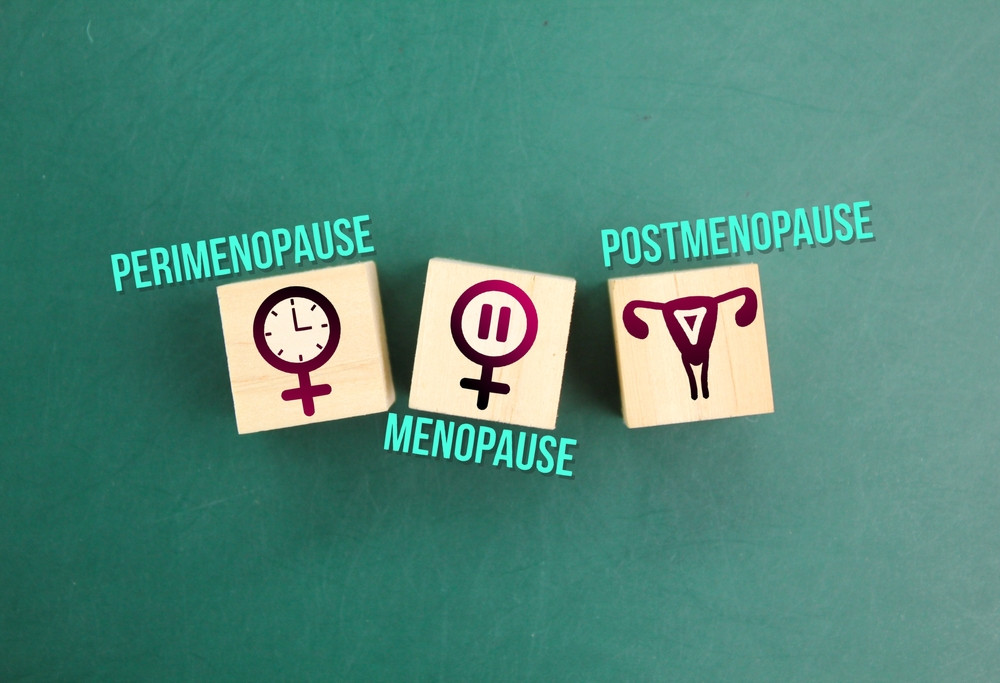Unexpected Perimenopause: Lesser-Known Symptoms and How to Manage Them
Riverview, United States - September 11, 2024 / Wellness Vitalized /
Uncommon Symptoms of Perimenopause: What You Need to Know
Perimenopause is the natural transition toward menopause, typically beginning in a woman's 40s, though it can start earlier or later, depending on individual factors. While hot flashes, night sweats, and mood swings are commonly associated with this phase, many women experience a host of other, less familiar symptoms that can be confusing or unsettling. These lesser-known symptoms are often overlooked, yet understanding them is key to navigating this transitional stage with more ease and confidence.
In this article, we’ll explore some of the most obscure symptoms of perimenopause, shedding light on the surprising ways the hormonal changes of this phase can affect various aspects of your body and mind.
1. Food Sensitivities and Allergies
Many women report new or worsening food sensitivities during perimenopause. You might suddenly become intolerant to dairy, gluten, or other common allergens, even if you’ve never had an issue before. These sensitivities occur because hormonal fluctuations can lead to inflammation and changes in gut health, which in turn affect how your body processes food. This phenomenon can be particularly frustrating as it forces you to rethink your diet at a time when other aspects of your health may already feel uncertain.
Managing these new sensitivities involves more than just eliminating certain foods. It may be helpful to work with a healthcare professional to identify the specific triggers and develop a nutrition plan that supports your changing body. Incorporating probiotics and anti-inflammatory foods can often help manage these sensitivities, as they play a role in maintaining gut health.
2. Increased Allergic Reactions
In addition to food sensitivities, many women notice an increase in general allergic reactions during perimenopause. You might suddenly develop sensitivities to fragrances, skincare products, or even environmental allergens like pollen. The reason behind this increase lies in the fact that estrogen plays a key role in regulating immune responses, and its fluctuating levels can cause the immune system to overreact, resulting in heightened allergic symptoms.
Women who have never experienced allergies might find themselves dealing with rashes, itching, or respiratory issues. While it can be perplexing, managing these symptoms may require switching to hypoallergenic products, using air purifiers, or adopting other measures to reduce allergen exposure.
3. Changes in Body Odor
Body odor is not something most women associate with perimenopause, but it’s a surprisingly common complaint. Hormonal fluctuations affect sweat production and the balance of bacteria on your skin, leading to changes in your natural scent. Some women report a more intense or different body odor than before, particularly after exercise or during stressful situations.
While this symptom can be uncomfortable or embarrassing, it’s important to remember that it is a normal part of hormonal changes. Keeping cool with breathable fabrics, using natural deodorants, and staying hydrated can help minimize the effects. In some cases, consulting a healthcare provider can help address any underlying hormonal imbalances contributing to the issue.
4. Vision Changes
While age-related vision decline is expected in your 40s and 50s, hormonal fluctuations during perimenopause can cause more sudden or pronounced changes in vision. Estrogen plays a role in maintaining eye health by keeping the tissues in and around the eyes lubricated. As estrogen levels decline, you may notice dry eyes, blurred vision, or even changes in how your eyes focus on objects.
Dry eyes are a common perimenopausal symptom that can make wearing contact lenses uncomfortable. Over-the-counter eye drops may offer relief, but if your vision is noticeably affected, it’s important to see an eye doctor. Regular eye check-ups during this stage of life are essential to monitor any changes and address them early on.
5. Metallic Taste in the Mouth
A metallic taste in the mouth is an obscure yet notable symptom of perimenopause. Some women experience this sensation intermittently, while others might have it persist for longer periods. The hormonal fluctuations affecting taste buds and saliva production may be to blame, though the exact cause remains uncertain. This change in taste can make certain foods less enjoyable and may lead to a reduced appetite.
If you’re dealing with a metallic taste, staying hydrated, chewing sugar-free gum, and eating citrus fruits can help. In more severe cases, this symptom can be a side effect of medications, so it’s worth discussing with a healthcare professional if it becomes bothersome.
6. Emotional Sensitivity and Mood Swings
While mood swings are widely recognized as a symptom of perimenopause, the extent of emotional sensitivity can be surprising. Many women feel unusually tearful or easily upset during this phase. Small stressors that were previously manageable may now feel overwhelming, leading to a sense of emotional instability.
This heightened emotional response is due to the significant shifts in hormone levels, particularly estrogen and progesterone, which both influence mood-regulating neurotransmitters like serotonin. These mood changes can feel especially challenging when combined with other perimenopausal symptoms such as fatigue or sleep disturbances.
Seeking emotional support through therapy, support groups, or mindfulness practices can be incredibly helpful during this time. Additionally, hormone replacement therapy (HRT) or bioidentical hormone replacement therapy (BHRT) may help balance your hormones and reduce emotional volatility.
7. Skin Sensitivity and Changes
Skin sensitivity is another often overlooked symptom of perimenopause. As estrogen levels decline, the skin loses some of its elasticity and moisture, becoming thinner and more prone to irritation. You might notice that your skin reacts more easily to soaps, lotions, or even temperature changes.
Along with increased sensitivity, some women experience more frequent breakouts or a change in their skin’s texture. Managing these changes often requires adjusting your skincare routine to include more hydrating and soothing products. Consulting a dermatologist can also provide guidance on how to care for aging skin during perimenopause.
8. Insomnia and Strange Dreams
Sleep disturbances are common during perimenopause, but they can extend beyond just difficulty falling asleep. Some women report vivid, strange dreams or even nightmares during this time. These unusual dreams may be tied to fluctuating hormone levels, particularly progesterone, which influences sleep patterns and REM cycles.
The emotional intensity of these dreams can lead to poor-quality sleep, leaving you feeling groggy and unrested during the day. Establishing a consistent sleep routine, minimizing caffeine intake, and practicing relaxation techniques before bed can improve the quality of your sleep. In more severe cases, hormone therapy may help stabilize sleep patterns.
9. Gum Health and Teeth Sensitivity
It may come as a surprise, but hormonal changes during perimenopause can affect oral health. Some women experience gum sensitivity, bleeding, or even an increased risk of gum disease during this time. Estrogen plays a role in maintaining the health of oral tissues, and as levels fluctuate, the gums can become more susceptible to inflammation and infection.
Additionally, some women report increased tooth sensitivity, making it uncomfortable to eat certain foods or drink hot or cold beverages. Practicing good oral hygiene, using a soft-bristled toothbrush, and visiting your dentist regularly can help manage these symptoms.
10. Frequent Migraines
For those prone to migraines, perimenopause can bring more frequent or severe headaches. The fluctuations in estrogen levels can trigger migraines, particularly around the time of your menstrual cycle. These migraines are often more intense and difficult to manage during perimenopause.
If migraines are becoming more frequent, tracking your triggers and working with a healthcare provider to balance your hormones may help reduce their occurrence. Some women find relief through lifestyle changes such as diet modifications, stress reduction techniques, and regular exercise.
Conclusion: Navigating Perimenopause with Confidence
Perimenopause is a complex and often unpredictable time of life, with symptoms that can extend far beyond the commonly recognized hot flashes and mood swings. From food sensitivities and skin changes to unusual tastes and migraines, the body’s response to fluctuating hormones can manifest in surprising ways. Understanding these lesser-known symptoms is essential for navigating this transitional phase with more confidence and control.
If you're experiencing any of these obscure symptoms and suspect they may be related to perimenopause, it’s important to seek professional guidance. At Wellness Vitalized, we specialize in hormone testing and treatment tailored to women in perimenopause. Our comprehensive approach helps address these unique symptoms, offering personalized treatment options like bioidentical hormone replacement therapy (BHRT) to support your well-being during this important life stage.
Contact Wellness Vitalized in the Tampa Bay area today to schedule a consultation and take control of your health during perimenopause.

Contact Information:
Wellness Vitalized
10017 Park Pl Ave
Riverview, FL 33578
United States
Carine Pierre
(813) 252-1775
https://wellnessvitalized.com/
Original Source: https://wellnessvitalized.com/media-room/

